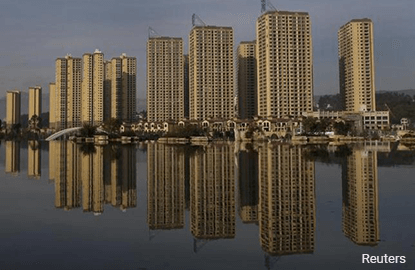
BEIJING (Feb 22): China's home price growth slowed for the fourth straight month as demand cooled further in the biggest cities, official data showed on Wednesday, signalling government curbs to defuse a bubble in the sector were starting to pay dividends.
Average new home prices in China's 70 major cities rose 0.2% in January from a month earlier, slowing a touch from December's 0.3% increase in a tempering of values seen since September.
Compared with a year ago, home prices still rose 12.2%, just off December's 12.4% gain, according to data issued by the National Bureau of Statistics (NBS).
In China's biggest cities, Shenzhen, Shanghai and Beijing prices rose 18.2%, 23.8% and 24.7%, respectively, from a year earlier, but Shanghai and Shenzhen's monthly pace slowed as local governments' tightening measures knocked demand.
The cooling in the property sector — a major contributor to the economy — was also likely due to less market activities heading into the long Lunar New Year holiday.
Home prices rose rapidly in many Chinese cities last year, leading to restrictions on purchases and lending in more than 20 cities since October. The government has been fretting over fast-rising leverage and the risk of asset bubbles in an economy that has recently shifted to a lower gear.
China's economic growth of 6.7% in 2016 was the slowest in a quarter of a century.
Banks in some big cities such as Beijing have started lowering discounts on lending rates for fist-time home buyers since this year, joining recent steps to curb financial risks stemming from loose credit conditions.
That's in line with the central bank's moves since late January to raise interest rates modestly on its medium-term loan facility (MLF), reverse repurchase agreements (repos) and standing lending facility (SLF), signalling a tightening policy bias over the coming year as it tries to contain the risk from years of explosive growth in debt.
Nonetheless, Chinese banks extended 2.03 trillion yuan (US$295.74 billion) in net new yuan loans in January, the second-highest monthly tally on record, even though a breakdown of the overall financing numbers appeared to indicate a surge in less-regulated shadow banking activity, possibly in response to the central bank's tougher stance.